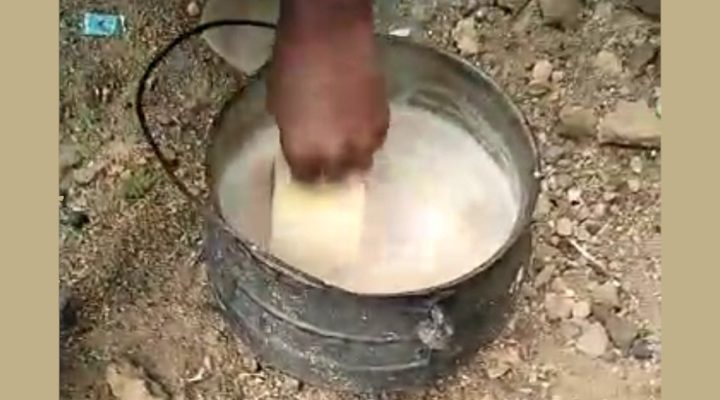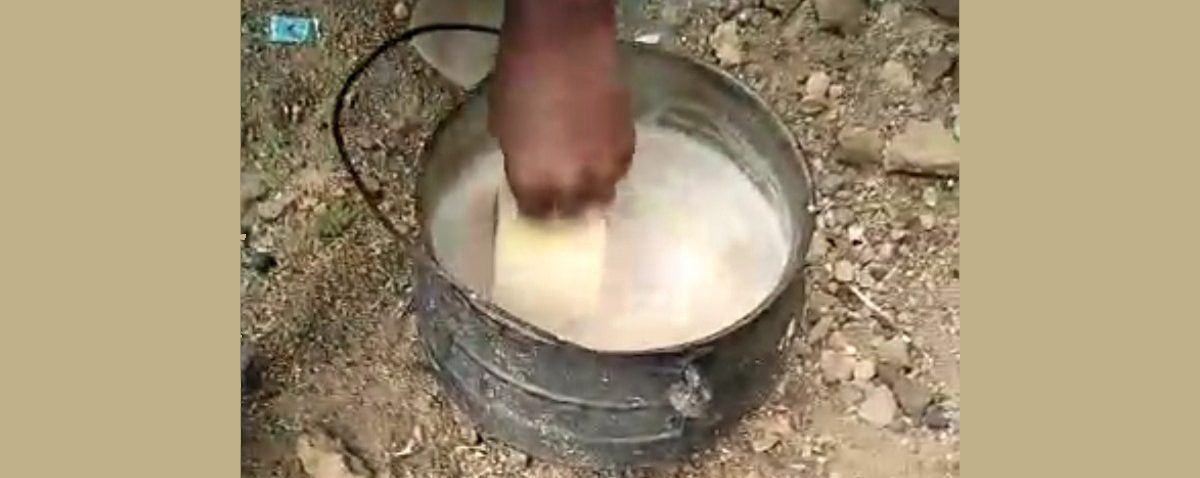Global food inflation has not spared South Africa, but amidst the high prices, millions in Africa’s biggest indigenous church cling to a tea ritual obsession despite rising prices of ingredients.
“It’s the tea of faith; a sip kicks off bad spirits,” explained Delani Malobanyana, a bishop in South Africa-based Zion Christian Church, speaking of the brownish tea strain shared among the flock in their homes or at services.
The ZCC is the largest indigenous African church in South Africa and countries nearby. Way back in 2001, Huffington Post put the number of followers of ZCC Church at 3.86 million in South Africa alone, quoting numbers from the country’s official statistics collection agency. Thousands more followers are scattered across neighboring countries of Zimbabwe, Botswana and Mozambique.
The ZCC church grew as a cultural rebellion against colonial Baptists and Anglican churches grabbing the space in South Africa in the late 1800s. Since 1910, millions of Black congregants have held to its ‘”Scientology-like” tenets of faith, and one of them is an obsession for tea drinking, gulping the contents of a bioorganic tea concoction whose original recipe is rarely revealed publicly.
In this age of global food inflation, where prices of tea ingredients (milk, sugar) have surged to a 13-year high in South Africa, one peculiar obsession with tea defines the identity of the ZCC church members, the majority whom are poorer working class people.
“No matter the punishing cost of milk and sugar, we’ll sacrifice our budgets to brew the church’s tea as directed by our pastors.”
“No matter the punishing cost of milk and sugar, we’ll sacrifice our budgets to brew the church’s tea as directed by our pastors,” said Mondli Rapane, 39, a devout follower in Limpopo, northern South Africa, who was born into the ZCC church.
The compunction to drink the tea is compounded by the mystery surrounding it, Rapane said. “It’s a secretive tea recipe, and our pastor doesn’t know its origins too.”
Millions of the church’s faithful drink the tea up to 10 times per day in their homes and with strict protocols to follow, thus making the recipe a big feature in household budgets, said Bishop Malobanyana.
Some speculate that the mystery tea is bioorganic Tepane, which is South Africa’s indigenous “Black bush tea,” which is rare and carefully plucked from the fauna of northern South Africa and prepared by grinding its leaves via rocks. But no one is sure as bishops and clerics never publicly dispense its recipe apart from just preparing jugs of the tea for any church member who wants to take it home to mix with sugar and milk.
The tea is brewed along the Japanese philosophies of kucho fugetsi, which entails church members sitting down together and deliberating on a serious matter by first taking a sip of tea to cool off tempers, explained Bishop Malobanyana. “ZCC church members coming to seek pastoral relief for life problems must be given a gallon of the tea with instructions on how to drink at home. The tea soothes, calms, energizes one in prayer; hence we must fiercely protect its recipe and origins.”
Adherence to a ritualistic tea obsession has, on paper, made millions of ZCC church members some of the most socially disciplined members of society in South Africa, a country with one of the world’s steepest abuses of alcohol.
“ZCC church members don’t drink alcohol and don’t smoke. For us, the church’s bioorganic tea is enough to build meditation, peaceful character, and good health habits,” said Solly Dladla, a ZCC pastor in Johannesburg. “The name of the tea is called ‘Taelo’ translated as ‘submission’ in the indigenous South Africa Sepedi language. The tea’s original recipe, I can’t tell.”
The tea, it is said, elevates women. ZCC members claim the tea is effective when it is warmed and dished out at home or church by women after a cleric hands over a gallon of the brownish tea.
“The tea is for the believer, for those quarreling seeking calmness, for the childless wanting, for those tormented by spiritual burdens. It cleans,” said Sarah Nyambose, 55, who all her life has grown up in the ZCC church in Johannesburg.
A 2017 scientific study carried out by the University of South Africa explored wide claims that the ZCC tea heals bodily ailments and concluded that among Western Christianity “there is a need for Africanisation that listens to black indigenous knowledge and voices from an African perspective.”
Now, the global wave of inflation has tipped South Africa’s inflation to 7.8%, up from 4%, and tea ingredients are getting more expensive than gas. But obsession with the mythical ZCC church tea has not dimmed at all.
“I’d rather cut bacon and Wi-Fi internet from my family monthly food basket than the church’s tea of faith,” said Ishmael Zodwa, a ZCC cleric at Mt. Moria, a revered hill in Limpopo, South Africa, where hundreds of thousands of ZCC members gather every Easter.
Related articles:
In South Africa, an unholy trinity — televangelists, TV stations and cellular companies
As joblessness rocks South Africa, fake pastor diplomas are in demand


